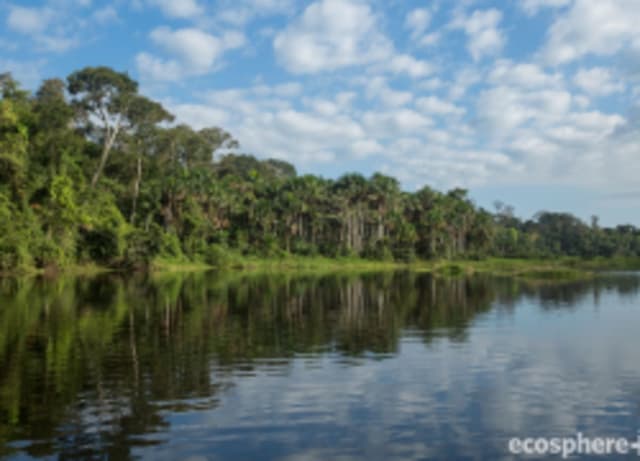Understanding the environmental impact of lockdown — is remote working a big step toward lowering our carbon footprint?
The combined forces of New Zealand’s clean green reputation and being listed high on the “Covid-19 Resilience Ranking”, suggest we are at risk of taking a ‘business as usual’ approach to both. In terms of net emissions levels, this seems to be the case: the impact of the 2020 lockdown is understood to be marginal at best — an estimated 0.3% decrease on 2019 levels.
But, scratching the surface of these stats to look at the figures resulting from one of lockdown’s biggest long term side effects — the normalisation of remote working — there are some real glimmers of environmental hope.
These short term emissions reductions indicate that we can make a real collective difference to our emissions. So, let’s start by looking more closely at New Zealand’s emissions during lockdown and the insights this can provide for businesses on their role in reaching net zero.
Traffic
The most immediate and obvious benefit of remote working is the removal of the commute and its associated emissions. With travel limited to essential workers and trips during lockdown, transport has been heavily reduced across the entire country, with traffic levels in most cities dropping by between 60–70%.
As New Zealand’s largest and most densely populated city, Auckland saved 72,000 tonnes of CO2 a week during lockdown. Over 4–5 weeks of Level 4, that’s around 300,000 tonnes: the amount of carbon absorbed by 2.6 million acres of forest, an area the size of 40 million tennis courts.
Of course, these are temporary drops in exceptional circumstances, but they are a great indication of the long-term reductions that could be achieved by businesses supporting flexible, remote working days and low emission commute options like e-bikes and public transport.
Energy consumption
Transport isn’t the only area reflecting a lockdown emissions upheaval. Keeping the majority of our population indoors has, unsurprisingly, led to an increase in power consumption at home by 15%. But, even with this rise in domestic power consumption, national electricity demand has actually decreased by 15% — not surprising with most of the power hungry factories halting industrial production.
This doesn’t give us quite so clear a picture, longer term, of how remote working could affect our energy emissions. What it does make clear is that industrial energy consumption far outweighs anything we do on a personal scale. One thing this suggests is that by lowering the productivity demand, we can reduce our overall emissions.
This is indicated, if tentatively, by the fact that while our overall emissions were reduced by 41.1% during the 2020 lockdown, our GDP reduced by 37% — meaning a marginal environmental gain per dollar generated.
Bringing this back to longer term business changes, solutions such as the four day working week make a lot of sense. Many businesses have struggled to reach customers remotely, and studies highlight the average reduction of productivity of workers decreased during lockdown. Four focused days of productivity followed by a three day weekend means lower industrial energy consumption and more leisure time for people to shop locally for the things they need and most importantly to spend with family.
What does this mean for reaching net zero emissions?
It is important to work towards meeting the mandatory government targets as a baseline to achieve net zero emissions. But, we also need to be aware that in their current form, these goals are not nearly ambitious enough. New Zealand’s 2030 emissions targets still sit far below those outlined in the Paris Agreement and, if the whole world were to work towards this reduction goal, we would be on a target for a 2–4 degree rise in global temperatures.
The best thing we can do, as businesses and individuals, is to lead by example, learn from the small climate victories that have come as a result of lockdown, and build on them.
This means things like embracing the many great aspects of remote working: flexible time, no commuting and video conferencing in place of business travel.
It also means approaching old work habits with fresh eyes — from more radical shifts like adopting a four day working week, through to recognising that as remote working starts to blur lines between home and work, employers have a responsibility to extend their ESG focus to the home office. As well as ensuring their team have access to energy efficient devices and clean transport options, a great place to start is in climate education — such as empowering staff to reduce their personal carbon footprints.
There have been multiple studies showing the benefits of sustainability within the workplace. To name a few, the Environmental Education Foundation study found that by creating a culture of sustainability there were gains in talent attraction, employee productivity, community recognition and brand strength. A Harvard Business study also found that employee loyalty was 38% higher and morale was 55% higher in companies with a strong culture of sustainability.
Ultimately, lockdowns are intended as short, sharp fixes — they’ve helped us bring the pandemic under control, but they’re not a solution. The resulting emissions stats from lockdown tell us much the same thing: making collective changes to how we live and work has a real, quantifiable effect on our environmental impact — but they’re reactions, not solutions. Now it’s up to us to learn from and incorporate this into a sustainable future of work.
Learn more about CarbonClick
CarbonClick is a Kiwi enviro-tech company who provide businesses and their customers with the tools to make climate action simple, meaningful and completely transparent.
Check out our new business solution, Climate Friendly Team — helping businesses to empower their staff with the tools to measure, reduce and offset their personal carbon footprint.


